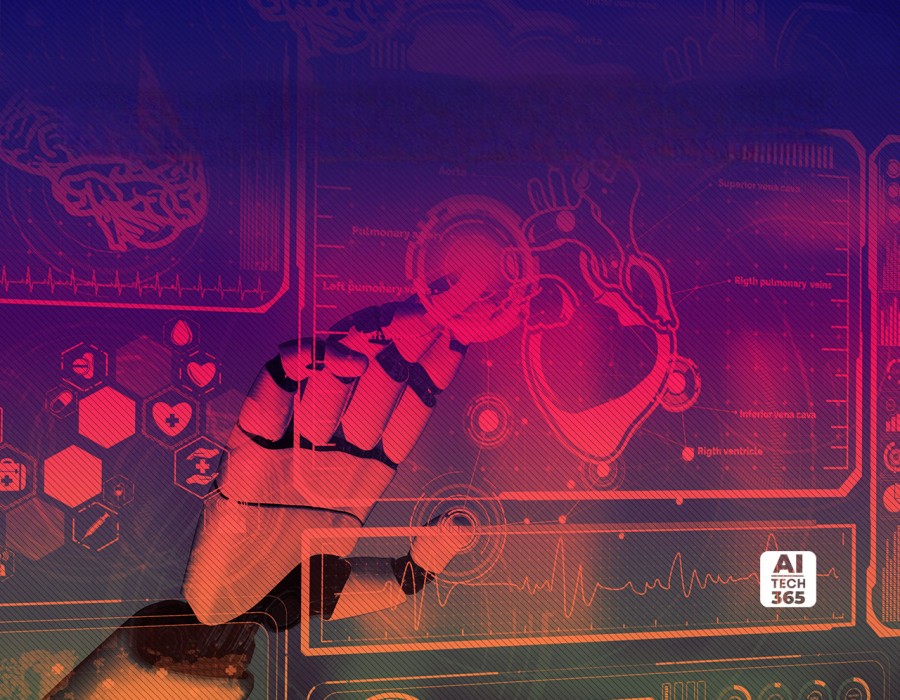In recent years, the incorporation of artificial intelligence (AI) has catalyzed a significant transformation in healthcare, particularly in areas like disease diagnosis and drug discovery. AI's ability to analyze extensive datasets and detect intricate patterns has positioned it as an essential tool in addressing some of the most pressing challenges in medicine. This guide delves into the substantial impact of AI on biomedical research, highlighting its contributions, challenges, and future prospects.
Understanding AI in Biomedical Research
AI in biomedical research entails utilizing AI technologies to analyze complex medical data, forecast outcomes, and identify trends across various biomedical contexts. This includes employing AI algorithms for medical imaging analysis, such as automated evaluation of cardiac MRI scans, detection of liver lesions and lung nodules in MRI and CT images, and assessment of echocardiograms.
Additionally, AI is instrumental in analyzing chest X-rays for pneumothorax indicators, evaluating brain CT and MRI scans for patients with brain injuries or neurological disorders, and examining retinal images to detect diabetic retinopathy. The integration of AI in biomedical research promises to revolutionize the field by enhancing patient care, facilitating rapid clinical decision-making, optimizing innovation, and streamlining research processes in a cost-effective manner.
Applications of AI in Research
AI presents numerous applications in research, including:
- Data Analysis and Pattern Recognition: AI algorithms are adept at processing large datasets to uncover patterns and correlations, making them invaluable in fields like genomics, climate science, and social sciences.
- Natural Language Processing (NLP): NLP empowers computers to understand and generate human language, allowing researchers to analyze textual data, extract information, summarize documents, and assess sentiment in literature, linguistics, and social sciences.
- Recommendation Systems: AI algorithms facilitate personalized recommendations, helping researchers discover relevant papers and conferences while optimizing information retrieval.
- Task Automation: AI tools can automate routine tasks such as data collection and analysis, allowing researchers to focus on more strategic and creative endeavors, ultimately enhancing productivity.
- Streamlined Experimentation: AI aids in designing experiments, optimizing parameters, and automating data collection, thereby saving time and minimizing human error throughout the research process.
AI's Role in Biomedical Science
Artificial intelligence is redefining biomedical science and healthcare through its diverse applications. In medical imaging, AI algorithms enhance the accuracy and efficiency of diagnostic processes by analyzing CT scans, X-rays, MRIs, and other images. In clinical decision support, AI assists healthcare professionals in making informed treatment and medication choices. Furthermore, AI accelerates the identification of potential drug candidates and streamlines clinical trials, potentially shortening drug development timelines and reducing research and development costs.
Moreover, AI contributes to predictive analytics and personalized medicine, tailoring healthcare solutions to individual patient profiles. Despite its immense potential, challenges such as ethical dilemmas and data privacy concerns must be addressed. Ongoing advancements in AI technology, along with collaborative efforts among researchers, healthcare providers, and policymakers, can help navigate these challenges. The future of AI in biomedical research and healthcare holds tremendous promise for groundbreaking innovations in disease management, precision medicine, and healthcare delivery.
Four Key Applications of AI in Biomedical Research
Here are some significant applications of artificial intelligence in biomedical research:
Identifying New Drug Targets
- One of the most exciting prospects of AI in biomedical research is its capability to analyze extensive datasets to uncover new insights. Previously, scientists faced limitations due to the volume of data they could analyze. However, the rise of big data has equipped researchers with vast amounts of information to deepen their understanding of diseases and develop new treatments.
- For instance, DeepMind's AlphaFold, introduced in 2019, is an AI model capable of predicting protein structures—an essential aspect of understanding their functions and developing new drugs. This innovation has the potential to transform the drug discovery landscape, demonstrating how AI can interpret big data in biomedical research effectively.
Personalizing Medical Treatments
- AI is making strides in personalizing medicine by analyzing a patient’s genetic makeup to identify the most effective drugs and treatments. This approach aims to enhance care quality and reduce healthcare costs.
- A notable example is a recent study from Stanford University, where AI was utilized to identify a new treatment for a rare leukemia type. The AI-driven therapy proved more effective than traditional options and had fewer side effects, showcasing AI's potential to customize treatment plans and improve patient outcomes.
Automating Clinical Processes
- AI is increasingly applied to automate various clinical tasks, including data entry and medical imaging analysis. This automation allows healthcare professionals to concentrate on patient-centered activities, enhancing care accuracy and efficiency.
- A study from the University of Pennsylvania demonstrated that AI-powered software could identify diabetic retinopathy—a leading cause of blindness—equally as accurately as a human ophthalmologist but with greater speed and cost-effectiveness.
Enhancing Patient Outcomes
- AI has the potential to significantly improve patient outcomes by identifying new drug targets, developing innovative treatments, personalizing medicine, automating clinical tasks, and enhancing overall patient care. As AI technology continues to evolve, we can anticipate further groundbreaking advancements in biomedical research, transforming how we approach disease treatment and improving patient lives globally.
Conclusion
AI in biomedical research serves as a powerful catalyst for change, rapidly reshaping the healthcare landscape. As AI technology progresses, we can expect a surge of groundbreaking advancements that will revolutionize disease treatment and enhance the quality of life for patients worldwide.





Comments